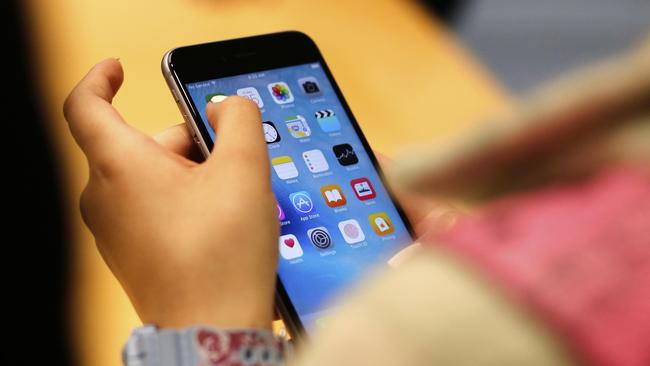NSW court decides $10m will written on iPhone not valid due to lack of intent
A remarkable NSW court case to determine the validity of a $10m will drafted on an iPhone, shows how technology is upending the staid world of estate planning.

Business
Don't miss out on the headlines from Business. Followed categories will be added to My News.
A remarkable NSW court case set to determine the payment of a $10m will drafted on an iPhone, captures how new technology is upending the staid world of estate planning.
The dispute hinged on the validity of an ‘iPhone note’.
And though in the end, the will was deemed invalid, that was not because the contents were drafted on a mobile phone. Rather, it turned on the more traditional notion of establishing intent.
In fact a string of recent court cases involving wills written down in unlikely places shows the trend is irreversible.
One recent case was based on an ‘unsent text message’, while another was on a saved document that had never been printed out.
Traditionally a will was signed on paper and witnessed by two people to be valid, View Legal director Matthew Burgess said.
“Until relatively recently, it had to be paper and ink for a will but the key point here is that the mode of delivery has widened.
“In the iPhone note case, the deceased left a digital note on his iPhone (titled the last will of Colin L Peek) setting out how his estate should be divided, which was created only days before his death.
“A friend and lawyer of Peek acted on behalf of the primary beneficiary under the iPhone note will. The primary beneficiary was another friend of the deceased (with the friend entitled to in excess of $10m if the iPhone will was valid).
“Although the solicitor himself also stood to receive an entitlement (of in excess of $300,000) if the electronic note was held to be valid.
The family – who would inherit under the state-based intestacy regime if the iPhone note was held to be invalid – successfully argued the note was simply a working document and never intended to amount to a final (informal) will.”
As Burgess said: “The courts are going to have to be satisfied that the intent is there even if the words would indicate that intent was there as well.”
So-called informal wills are now increasingly common – and they are not all digital.
In a 2024 decision from the UK, the deceased wrote what was held to be their valid last will across two food packaging boxes - one that had contained frozen fish, and the other mince pies.
“Broadly courts can recognise informal statements as valid testamentary documents if it can be proven that the deceased intended the relevant documents to in fact serve as their last will – even when basic widely known requirements, such as being signed by the will maker and witnessed by two independent adults, are not met,” Burgess said.
Lawyers and financial advisers warn that these types of cases might make headlines but they are also a reminder of the material costs (both financial and emotional) and lengthy delays that can be triggered by a failure to strictly comply with the statutory requirements to make a valid will.
“People are starting to get a deeper understanding of what it means to say that a person had an intention to create a will,” Burgess said.
Originally published as NSW court decides $10m will written on iPhone not valid due to lack of intent




